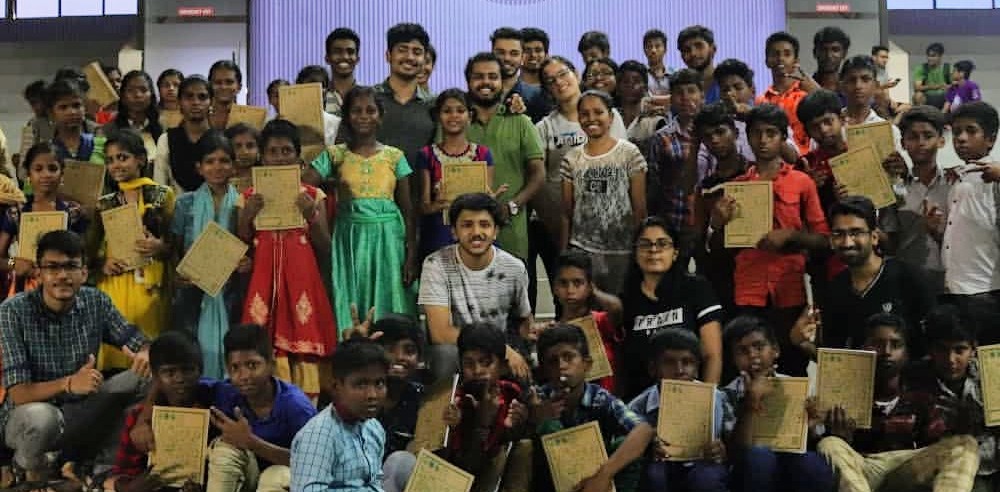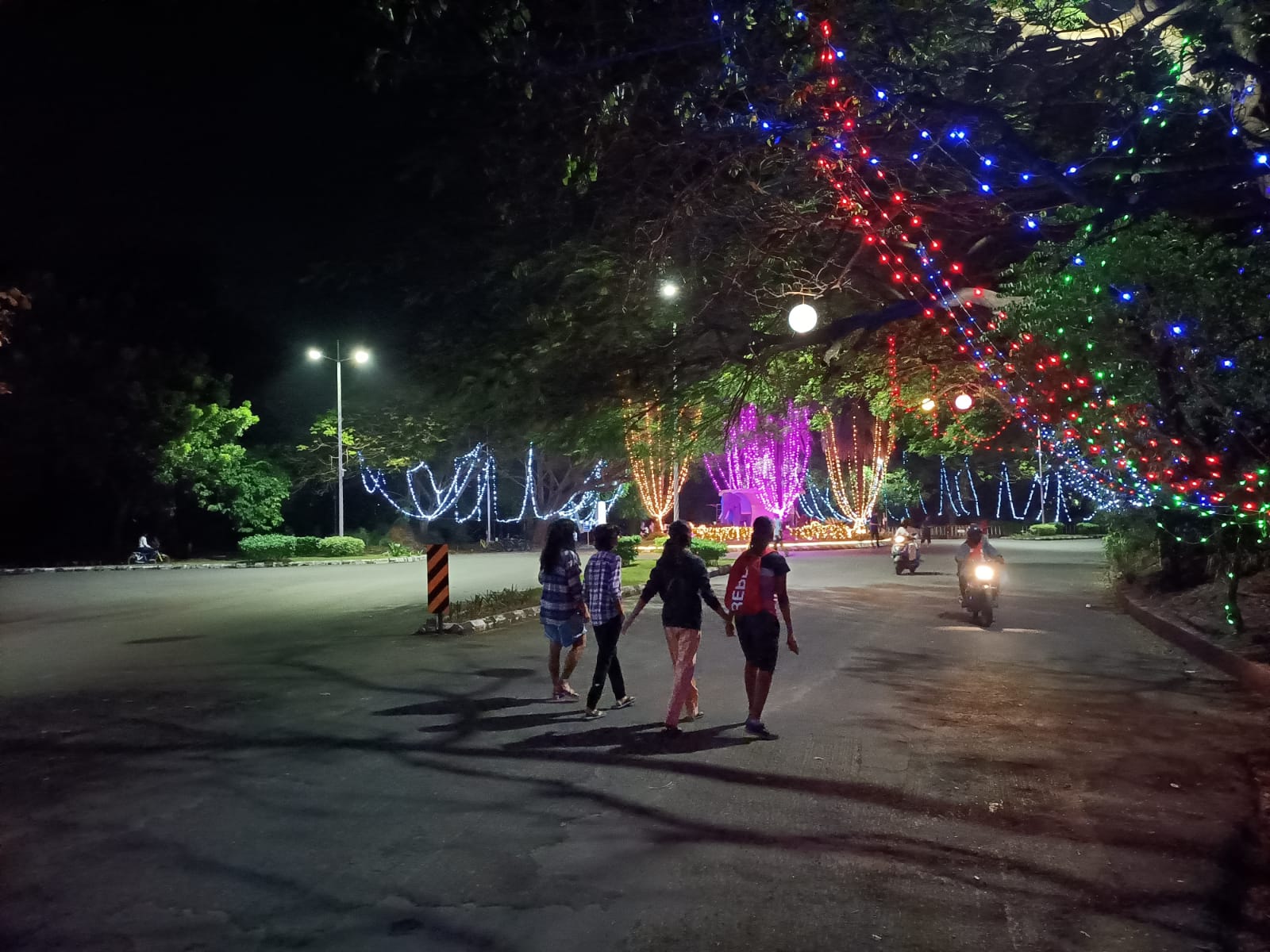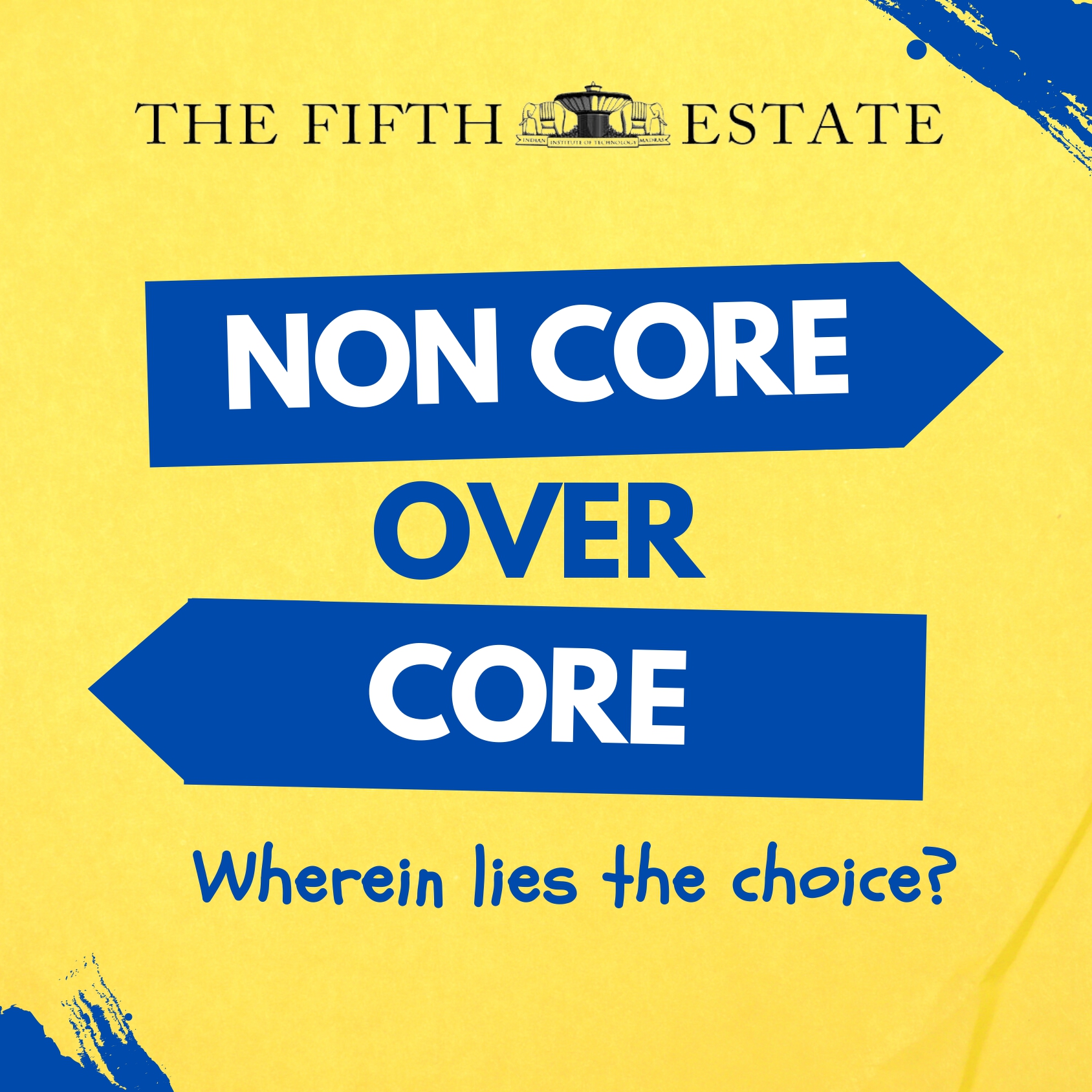With Saarang around the corner again, T5E sat down with Sponsorship Core Atharwa Sheth to talk about one of Saarang’s best initiatives – LEAP.
T5E: Can you give us a brief introduction to LEAP?
LEAP stands for the Learning and Educational Accessibility Project. LEAP was started last year at Saarang by our former cores. The idea was to make education accessible to underprivileged children. All efforts in that direction are a part of LEAP. Last year we made notebooks from recycled paper and was the main activity then. This year we have expanded it to four main activities.
The first one is the One for One campaign. Basically, we sell LEAP notebooks for a higher amount and we put in an equal amount for buying more notebooks and giving it to the underprivileged. The second one is the career counselling activity to be conducted during Saarang. We are in association with a Career Counselling group and they have agreed to do career counselling for a group of 125 students for free. They charge us only the money for the advisors which is around 5,000-10,000 a day. The third one is the Audio Book campaign. People who cannot see have a hard time learning and reading, so we started a campaign wherein you can record small text audio and send it to us and we have a mechanism to send it off to those who need it. The fourth one is Reading Rooms. We are planning to collect old novels and set up a library for students in underprivileged schools. Apart from this, we have other things in mind which will be done in the next semester. We will form a small team from the Saarang coordinators, headed by Dhananjay, Parthiv (the other two cores) and me. We will do a couple of activities next semester. Every year, the profits from the Choreo night go to social causes. This will be around 2-3 lakhs and out of this, we will try pulling in some amount and put it into LEAP.
T5E: LEAP was also the social campaign of Saarang last year. How much further have you taken it with this year’s edition of LEAP?
Last year, the idea of notebooks was there, but it was restricted, in some manner, to us making notebooks. There was no student participation. So this year, we asked the students to buy notebooks from us, through the One for One campaign. This will ensure direct student participation in a good cause. For the profits that we make, we will add an equal amount to that and buy notebooks for the underprivileged. Around 300-500 notebooks were sold.
T5E: Can you tell me something about the ‘Day at IITM’ initiative?
Around 80 students from a government school came to IIT Madras. We showed them the Central library and then took them to CFI, where we showed the Raftaar car, to get them enthusiastic about technology. We then had lunch with them at HFC, bought from Zaitoon. We took them to SAC after this, where a couple of choreo sessions were planned. Here, we also conducted the Digital Literacy Campaign. These children didn’t have a proper idea of computers and emails. We explained this briefly and assisted them in making their first Gmail accounts.

T5E: What is the next step to the digital literacy campaign? Have you planned anything for the coming semester?
We have a lot of activities planned. As of now, LEAP is for underprivileged children. We have a couple of ideas like financial literacy. There are a lot of people in rural areas and even in parts of Chennai, who do not know about UPI, which we use frequently. Even around the surrounding areas of Velachery here, there are people who are unaware of an emerging digital economy. We could use the manpower and brainpower of IIT Madras to solve this. This could be an aspect of the wide array of opportunities that digital literacy provides. The career counselling activity planned for all the 125 students will be on computers. But apart from these, we do not have many activities planned in this direction. The four pillars will be our main focus. But if we come across a good, impactful idea, we will definitely try to make it happen.
T5E: Have you talked to the children that you have been helping?
Yes, some of them came to IITM last year also. The choreo team engaged them in dance classes, which they loved. There are recurring students. And they love the entire day. And we have a lot of fun interacting with them, doing fun activities with them, talking about Saarang to them and so on. So it’s very well received.

T5E: What activities have been planned during Saarang?
We have a few games in mind for LEAP. I am planning to combine LEAP with on-ground ticket sales. The on-ground ticket sales will happen through a different agency. We will place some LEAP notebooks where this is happening. Our coordinators will be sitting there and I am planning to create a few combos with the notebooks. So, first, people will know about LEAP, and a small token amount of 30-50 won’t harm anyone. We have some activities planned around the Carnival zone as well. We also have other initiatives as well. We have provided a stall for palliative care, free of cost. People who are terminally ill need extra care, especially when they are not well off. So these people will raise awareness and try to recruit volunteers for it. So our efforts will not be limited to LEAP.
We also have the Human Library. All this started when Dhananjay and I put in our applications last year and we had this idea to call people who have been through difficult situations in life to share their experiences. People who have survived abuse, risen through poverty to become successful, all these people can be an inspiration to all. They can help us learn from their experiences. Talking to them in small groups or one to one can help students learn a lot. We plan to call around 10-15 persons for this.
T5E: Can you elaborate on the Reading Rooms and Career Counselling?
Firstly, I will talk about the idea of LEAP. I thought of continuing LEAP as a social campaign because we as students are privileged in life. When you go out, we see children asking for money. They do not have even the basic necessities in life. I have always wanted to do something about what I have seen. This perfectly aligned with it. I believe that being part of a very large organisation and having access to a huge resource, we should be able to do something for these children. This has always been close to my heart. That is why I thought of career counselling. Because students of classes 8, 9 and 10 do not have an idea of what to do in life. Usually, they end up doing menial jobs not very beneficial for them, especially when they have had primary education and have the potential for much more. They do not know their potential. But through career counselling, they can have an idea of a future career. The 125 students will be given career guidance, some IQ tests, tests for personality and the like will be taken and they will know about the opportunities in life. Even if one student from the batch is benefitted, it will be great!
As to the reading rooms, it was Parthiv’s idea. These students do not have access to a lot of books. Many of us have novels and also basic books which we do not throw away because they are costly. But if we can donate them to a better cause, where you know people will read them, people will do it. The coming semester, we will arrange for collecting boxes across all the hostels where students can donate books. Everyone who donated two or more notebooks or reading books, the person will be given a LEAP badge. This will symbolise your participation in something good. This is incentivising students to take part in this in some way.
T5E: LEAP was selected for the Millennium Fellowship and ADB Youth Conference. Can you elaborate on how these helped in the campaign in any way?
Last year, my former core, Aniket Kamthe went for the Millennium Fellowship. It taught him how to go about a social initiative, how to plan it, how to execute it and so on. They teach a lot about leadership. When he came back, and during our core application phase, he talked to us of what he learned from there and what we can implement. This has helped us in planning out the four-legged plan and actually continuing the same campaign. A lot of the times, we think we have done enough with one campaign during the year. We think that since it’s previously done, we don’t have much more to do, so let’s start afresh. For getting any positive results, a campaign has to be carried out for 2-3 years. Doing short campaigns for one year will not yield the required result. With that thought in mind and with what Aniket has taught us, we have continued with LEAP this year, and we might actually also continue with it next year as well because it can lead to much greater impact.




